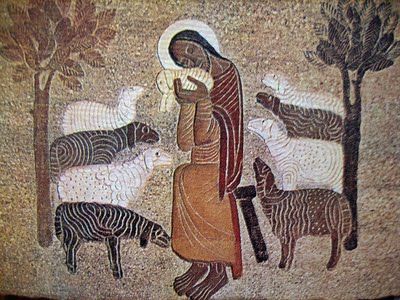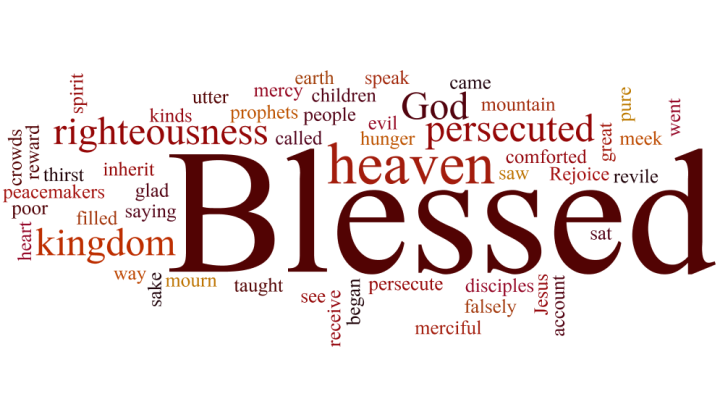“The Lord’s Great Love!”

Lamentations 3:19-23 (3:22) – October 2, 2022
I know everyone here has been sad, at one time or another. Who hasn’t? Lots of things cause sadness. Just think of things that have caused you sadness, either long time ago, or more recently. Being sad is part of having emotions, and is part of the human condition.
Looking at our Scripture reading today, we see the word “affliction.” This is a more serious state than simply being sad. Feeling sadness can affect us enough, emotionally speaking! Who hasn’t been downcast and sorrowful from time to time? But, being afflicted, with bitterness? That is a different aspect to being sorrowful, even grieving deeply.
Listen to these verses from today’s reading, again: 19 I remember my affliction and my wandering, the bitterness and the gall. 20 I well remember them, and my soul is downcast within me.” Affliction is more than sadness. The prophet Jeremiah knew that very well! He was called to be a prophet to the nation of Judah and its people during one of the most challenging periods of its history! Jeremiah could not help but cry bitter tears when all of this prophecy and future trauma was revealed to him by the Lord.
Any healthcare worker who works in a critical care area or trauma care unit is familiar with great sadness and affliction, in the lives of patients and their families. For some seriously ill patients, they have indeed been afflicted, and some for a long time. This can be devastating. As a hospice chaplain, I have the privilege of walking with some of these families during some of the darkest times of their lives – when they are drinking from the cup of affliction.
The prophet Jeremiah was quite familiar with the cup of affliction, too. He walked with, traveled with, the whole nation of Judah as they made their way through the valley of the shadow, and through some of the most difficult times of the nation.
The people of Judah had stubbornly rejected the Lord their God, and their stubbornness and selfishness would bring them suffering, destruction of their capital city of Jerusalem, and finally, an extended exile in Babylon for almost a century. Are people today any better? Do they follow the Lord, or do they run off after gods of their own devising? Their own creation? And by referring to “people today,” can’t that refer to you and me, too? Do we faithfully follow God and what God has directed? Or, do we stubbornly stamp our feet and go our own way?
We can see how great is Jeremiah’s grief if we look closely at this book of Lamentations, and see him grieve with God. No wonder Jeremiah’s heart was breaking for his people; he knew what God was going to allow to happen to them, as a result of them forsaking their loving God!
I know there are some here who have experienced that deep affliction, much more than sadness. What have you done when you have experienced that deep trauma? That agonizing depth of despair and wordless, breathless sighing? What is your help and stay?
Carolyn Brown tells us: “Sometimes, it just feels like we’re yelling and God is not listening. That is the hardest time. But even then, lots of people tell us that if you keep talking to God about it, eventually, sometimes after a very long time, it helps. No one can say exactly how or why. But it helps. So, we need to tell children that, when they are really, really angry and hurt and sad, they can tell God all about it.” [1]
Jeremiah has a clear answer, too. “21 Yet this I call to mind and therefore I have hope: 22 Because of the Lord’s great love we are not consumed, for Gods’s compassions never fail.” Yes, we can run away like disobedient preschoolers, dashing away across the playground. But, God never stops loving us. God may be grieved with us, as God was very grieved with the nation and the people of Judah, in Jeremiah’s time. But, God never stops loving us. Ever.
“Because of the Lord’s great love we are not consumed, for God’s compassions never fail.23 They are new every morning; great is your faithfulness.” And, these are the bible verses where the lyrics for that marvelous hymn come from: “Great is Thy faithfulness, great is Thy faithfulness. Morning by morning, new mercies I see. All I have needed Thy hand hath provided; great is Thy faithfulness, Lord, unto me.” Yes, no matter how stubborn God’s children are, no matter how much they ignore or run away from God, the Lord’s love and mercy and faithfulness are great. God’s compassions never fail. Never.
We can see how great God’s love is for humanity through the incarnation. Yes, God sent God’s son to earth to become human, live among us, and die for us. And, on this World Communion Sunday, we remember how our Lord Jesus provided communion for us, as a sacrament, a means of grace, and to remember Him. Through the centuries, all believing Christians have celebrated this meal, this Lord’s Supper, in remembrance of Him.
“Today, through World Communion, we are also celebrating that though each church does things differently, we each and all of us need God and His grace. By participating together around the world in Holy Communion, we celebrate our common need for God, and together we celebrate receiving His love and grace.
“There are many different people. There are many different churches. There are many different ways of worshipping and serving God. But in the end, we all need God and we all are God’s children. Today we celebrate that we are different, yet we are the same.” [2] Yes, we can celebrate our particular way of observing the Lord’s Supper. And, we can respect and appreciate the many different practices of taking Communion, from all across the world.
So, let us come to the Lord’s Table, along with countless people around the world today, as well as through the ages. It does not matter whether we join together in a cathedral with elaborate ritual and reverence, or in a simple house church with plain words and equal reverence.
Thank God we all have God’s love, and we all have been gifted with the Lord’s Supper. We all do this, in remembrance of our Lord Jesus Christ. Alleluia, amen!
(Suggestion: visit me at my other blogs: matterofprayer: A Year of Everyday Prayers. #PursuePEACE – and A Year of Being Kind . Thanks!
[1] http://worshipingwithchildren.blogspot.com/2013/09/year-c-proper-22-27th-sunday-of.html
[2] https://onthechancelsteps.wordpress.com/2013/09/22/same/






